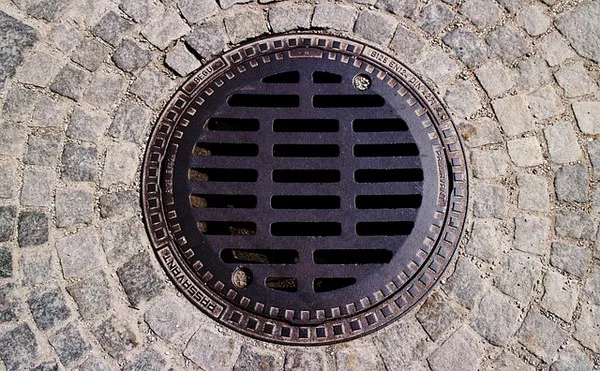Wastewater management and environmental conservation have become increasingly crucial topics in today’s world. Wastewater engineers play a pivotal role in safeguarding public health and the environment by designing, implementing, and optimizing systems for the treatment and disposal of wastewater. This article delves into the responsibilities, skills, and importance of wastewater engineers in maintaining sustainable water systems.
Overview of Wastewater Engineering
Wastewater engineering is a specialized branch of environmental engineering that focuses on managing and treating wastewater generated from residential, commercial, and industrial sources. The primary goal of wastewater engineers is to develop systems that effectively treat wastewater to remove contaminants and harmful substances before releasing the treated water back into the environment or recycling it for various purposes. Additionally, they are responsible for ensuring compliance with environmental regulations and standards.
Responsibilities of Wastewater Engineers
1. System Design and Planning:
One of the core responsibilities of a wastewater engineer is to design wastewater treatment systems tailored to the specific needs of the community or industry they serve. This involves assessing factors such as the volume and composition of wastewater, available land, budget constraints, and regulatory requirements. Engineers must design systems that efficiently remove pollutants, minimize environmental impact, and optimize resource utilization.
2. Treatment Process Selection:
Wastewater engineers evaluate various treatment processes, such as physical, chemical, and biological methods, to determine the most suitable approach for a particular situation. They analyze the characteristics of wastewater to select processes that effectively target the specific contaminants present, ultimately ensuring the treated water meets the required quality standards.
3. Environmental Impact Assessment:
Before implementing any wastewater management project, engineers conduct comprehensive environmental impact assessments. This involves evaluating potential effects on water bodies, soil quality, air quality, and overall ecosystem health. The aim is to minimize negative impacts and preserve the delicate balance of the environment.
4. Regulatory Compliance:
Wastewater engineers work closely with regulatory bodies to ensure that their projects adhere to local, regional, and national environmental regulations. They are responsible for obtaining the necessary permits and approvals, and for maintaining continuous compliance throughout the project’s lifecycle.
5. Operation and Maintenance:
Beyond design and implementation, wastewater engineers are often involved in the operation and maintenance of wastewater treatment facilities. They oversee the day-to-day operations, troubleshoot issues that arise, and make adjustments to ensure the system functions effectively and efficiently.
6. Research and Innovation:
To stay abreast of advancements in wastewater treatment technology and sustainable practices, engineers engage in ongoing research. They explore innovative solutions to enhance treatment processes, increase energy efficiency, and minimize the environmental footprint of wastewater management.
7. Public Health Protection:
Wastewater engineers play a crucial role in safeguarding public health by preventing the spread of waterborne diseases. By effectively treating wastewater, they minimize the risk of contamination of water sources used for drinking, recreational activities, and agricultural purposes.
Skills Required for Wastewater Engineers
To excel in the field of wastewater engineering, professionals must possess a diverse skill set that combines technical expertise with practical knowledge:
1. Technical Proficiency:
Engineers must have a deep understanding of chemistry, biology, fluid dynamics, and other scientific principles that govern wastewater treatment processes. Proficiency in process modeling and simulation software is also essential for designing and optimizing treatment systems.
2. Problem-Solving Skills:
Wastewater engineers frequently encounter complex challenges that require creative problem-solving. They must be adept at identifying issues, analyzing data, and devising effective solutions to ensure the efficient operation of treatment systems.
3. Regulatory Knowledge:
A strong grasp of environmental regulations and guidelines is crucial to ensure projects meet legal requirements. Engineers must stay updated on evolving regulations to maintain compliance and avoid potential legal and environmental pitfalls.
4. Communication and Collaboration:
Wastewater engineers collaborate with multidisciplinary teams, including chemists, biologists, urban planners, and local authorities. Effective communication skills are vital for conveying technical information, managing projects, and coordinating with various stakeholders.
5. Adaptability:
The field of wastewater engineering is constantly evolving, with new technologies and best practices emerging. Engineers must be adaptable and open to learning in order to integrate the latest advancements into their projects.
Importance of Wastewater Engineers
Wastewater engineers play a critical role in preserving water quality and protecting ecosystems. Their work has far-reaching impacts:
1. Environmental Protection:
By designing and implementing effective wastewater treatment systems, engineers prevent pollutants and contaminants from entering water bodies. This reduces the degradation of aquatic habitats and helps maintain the health of aquatic ecosystems.
2. Resource Conservation:
Treated wastewater can often be recycled for non-potable purposes such as irrigation or industrial processes. Wastewater engineers contribute to resource conservation by identifying opportunities for water reuse and implementing strategies to minimize water wastage.
3. Disease Prevention:
Inadequate wastewater treatment can lead to the spread of waterborne diseases, posing a significant public health risk. Properly treated wastewater reduces the likelihood of disease transmission and contributes to healthier communities.
4. Sustainable Development:
As global populations grow and urbanize, sustainable wastewater management becomes essential for maintaining the balance between development and environmental conservation. Wastewater engineers ensure that communities can expand while minimizing their ecological footprint.
Conclusion
Wastewater engineers are unsung heroes in the realm of environmental engineering, working diligently behind the scenes to ensure that the water we release back into the environment is safe and free from contaminants. Their expertise in designing, implementing, and optimizing wastewater treatment systems is indispensable for safeguarding public health, protecting ecosystems, and promoting sustainable development. As we continue to navigate the challenges of growing populations and environmental concerns, the role of wastewater engineers remains pivotal in creating a cleaner, healthier, and more sustainable world.

